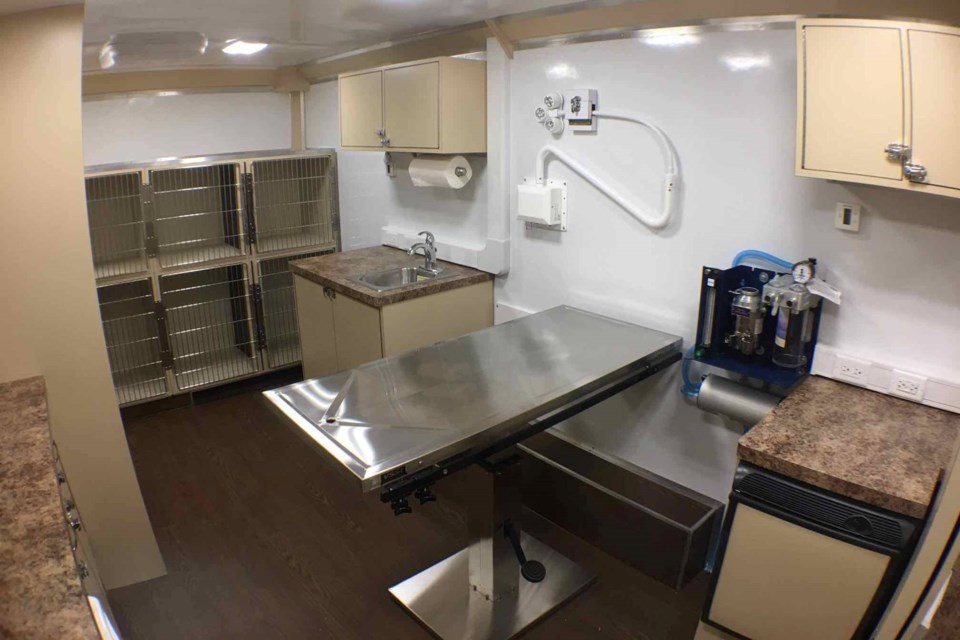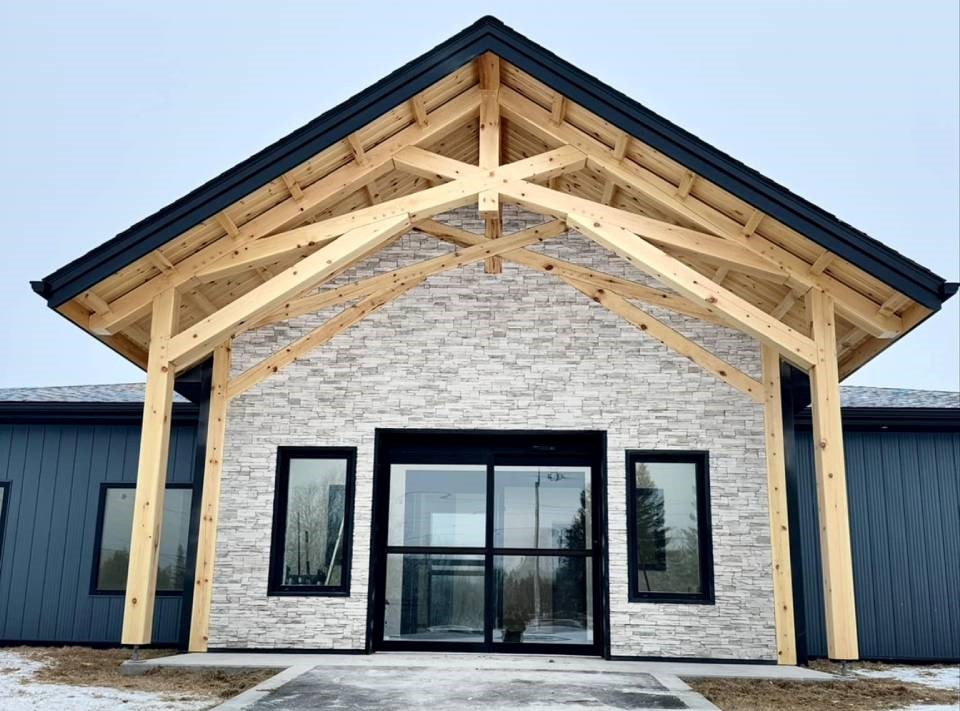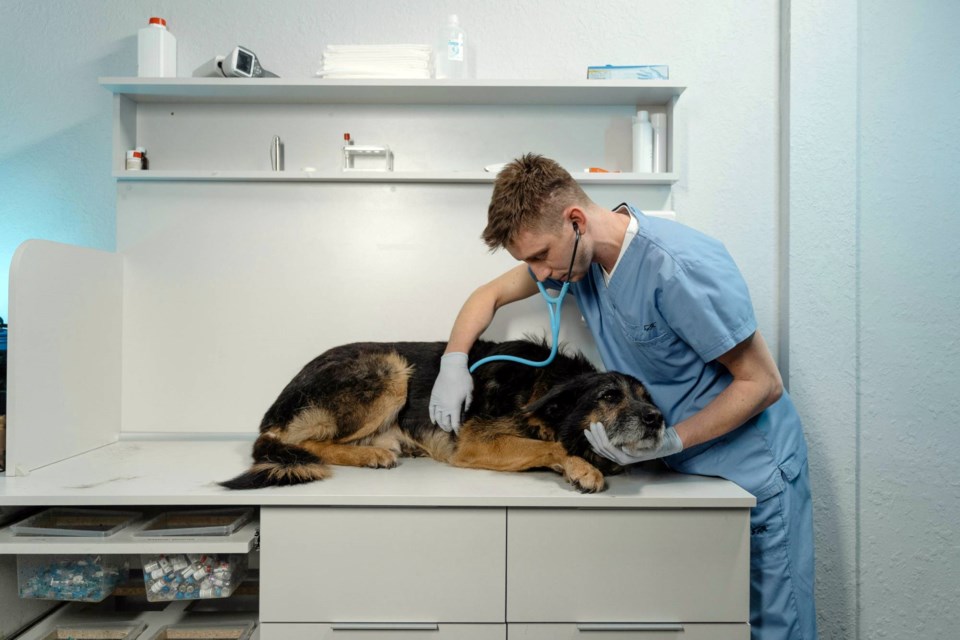Pet owners in northwestern Ontario have long been accustomed to travelling far distances to get their furry companions medical care, but a new initiative led by Dryden Veterinary Services is looking to ease that worry for people in the region.
This spring, the animal care clinic will partner with the Municipality of Sioux Lookout on a pilot project to bring two new veterinary technician interns to the community in an effort to lessen some of the strain on the current veterinary care system.
Dr. Greg Springett, the owner and lead veterinarian at Dryden Veterinary Services, said the aim is to have vet techs help supplement the care provided by veterinarians, who are currently in limited supply.
According to the Canadian Veterinary Medical Association, “a severe shortage of veterinary professionals is negatively impacting the health and well-being of the veterinary workforce and places additional pressures on the level of quality care they can provide for their clients.”
“Unfortunately, no matter where you are, that is some of the struggle,” said Springett, who’s owned the clinic since 2014. “We’re looking for new veterinarians, and most of my classmates and other peers that I talk to are in the same struggle, in that there doesn’t seem to be anybody available to hire.”
Prior to the pandemic, technicians would travel during the warmer months to area communities with Dryden Veterinary Services’ mobile clinic — a self-contained unit on wheels that’s outfitted with an examination table, animal crates, storage space, and equipment that can be towed by pickup truck.

Visiting places like Sioux Lookout (a little over an hour’s drive) and Red Lake (about two and a half hours away) helped them see clients who struggle to travel, or whose pets do not travel well.
“Unfortunately, with the pandemic, and just the increased burden, we were no longer able to take that mobile trailer out,” Springett said. “So it’s sitting in a garage not doing anything.”
Jennifer Esposito knew this and wondered if there was a way to get it back into service again.
As the economic development officer for Sioux Lookout, she’s familiar with Dryden Veterinary Services and the crucial role they play in local animal health care.
As a former vet tech with 20 years of experience in the industry, she’s equally familiar with the ongoing critical shortage of both veterinarians and veterinary technicians.
So she approached Springett to see how they could revive the mobile clinic as part of a bigger solution.
“We approached the College of Veterinarians of Ontario (CVO) together to see what they would think about that, and it just happened to be that the CVO has it as a strategic priority at the moment to improve their understanding of northern issues,” Esposito said.
This comes as the province announced last year it would conduct a review of the Veterinarians' Act with the potential of expanding the scope of practice for veterinary technicians.
There can often be a “disconnect” between Northern Ontario practitioners and their southern Ontario counterparts, Esposito noted, especially in understanding some of the challenges northerners face.
Animal care clinics are often hours away, requiring clients to make long trips to have their pets seen. Bad weather or accidents can close a highway for hours, and transportation options are generally limited to personal vehicles only.
It’s not ideal, especially if a pet requires life-saving treatment.
So their idea is this: Dryden Veterinary Services will hire two veterinary technician interns that are either already enrolled in a virtual vet tech course, or are willing to transfer to one. (Students can enroll in a virtual program as long as they are already working in a facility where they can do their practical training.)
One intern will remain at the main Dryden Veterinary Services clinic in Dryden, working alongside a fully qualified veterinary technician, while the other intern will work in the mobile clinic, in Sioux Lookout, alongside a second fully qualified veterinary technician. The two interns will periodically switch places so they’re both exposed to the full scope of training at the clinics.
They'll also provide assistance in virtual veterinary consultations to supplement in-clinic care.
The hope is that, once the vet techs complete their training and are licensed, they’ll remain in the community to practise.
Want more business news from the North? Sign up for our newsletter.
It’s a two-year pilot project, and Esposito said they’ve received Northern Ontario Heritage Fund money to fund the two intern positions, each of which comes with a $70,000 salary.
“It's really a great opportunity for someone because, starting at $70,000, and as a student, that's a pretty decent starting wage,” Esposito said.
“And if they're from the North, that means they can stay closer to home, close to their family while they're learning, and make an income at the same time rather than just accumulating debt.”
Though it might not seem like it on the surface, Esposito said enhancing veterinary care is economic development for her community.
Any efforts that build on Sioux Lookout's existing services help with recruitment and retention of new people to the area, she said, especially since the municipality is known as a hub for the North when it comes to health and social services.
“That is what Sioux Lookout is about, and this is a gap in services that doesn’t align with that picture of being that hub for excellent medical care, which should include our animal members of our family,” she said.
Recruitment for the two interns has begun, and the goal is to have the pilot up and running in the spring, she noted.

That will coincide with the opening of Dryden Veterinary Services’ brand-new, 4,950-square-foot clinic on March 19, which is just now getting the finishing touches.
Springett said the clinic will be a hive of activity in the coming months, as they move into the new clinic and iron out the details of how the vet tech intern pilot will work in practice.
“But we’re hopeful that, if we can remove some of the travelling out of people’s lives, it might make things a little bit easier,” he said.
Esposito credits Dryden Veterinary Services with having a “forward-thinking” mindset in looking for innovative new ways to serve the community, despite how heavy its patient load is already.
“Pet owners have a very different expectation now than they did 40 years ago about how their pets are cared for, and the level of care they are to receive,” she said.
“I think it’s really incredible that despite how busy they are, (Dryden Veterinary Services) is still looking for ways that they can contribute to serve the greater region.”
